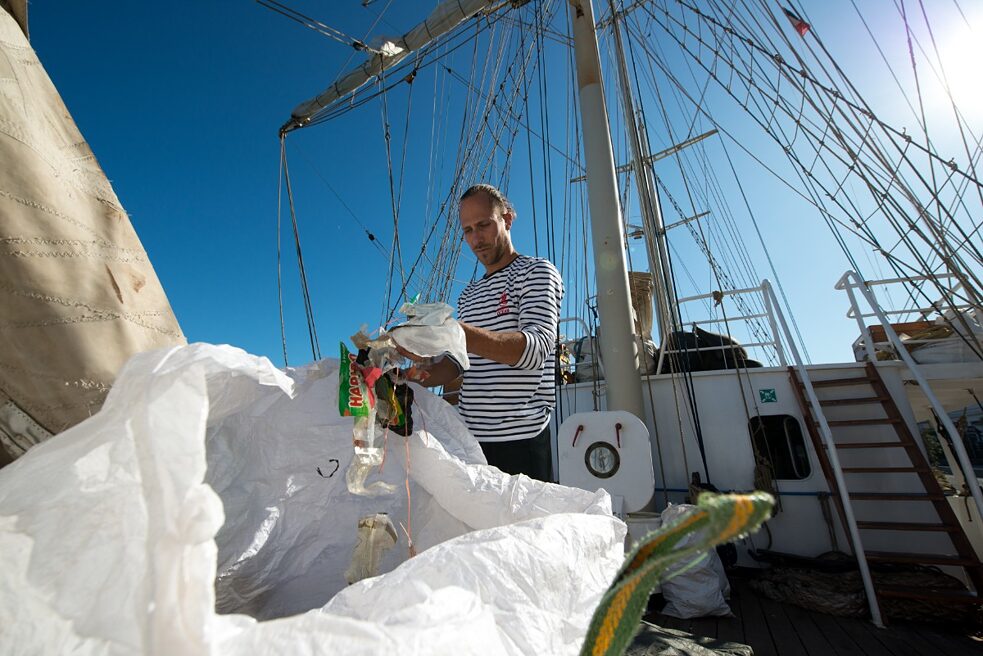The world of work is partly to blame for biodiversity loss, climate change, environmental pollution, pandemics, growing poverty and extreme wealth in the hands of a privileged minority. Which is why more and more people are looking for ways in which to make their contribution in line with the principles of solidarity and ecology – in short, how they can work sustainably.
To what extent is the world of work partly to blame for environmental disasters and social inequalities?
Western society is characterized nowadays by its excessive consumption and by the huge infrastructures and technology industries upon which it is based. The colonial legacy coupled with a globalized and capitalist free market economy allows some companies to achieve productivity on a scale that far exceeds any socially or ecologically responsible levels, and to do so at extremely low costs.Gradually, people are becoming increasingly aware that the way we work is responsible for the environmental and social crisis. Young graduates are no longer interested in pursuing careers in engineering. And even those sectors that are associated with ecological change – industrial wind power production, biofuels and biogas, waste management – are frequently accused of greenwashing these days: i.e. of painting a green corporate image for themselves while concealing their harmful environmental practices.
The coronavirus pandemic has highlighted the paradoxical nature of the world of work: many professions that add to the social and environmental damage enjoy a good reputation in economic and social terms, whereas those that contribute to the common good are not acknowledged. The lockdown has made bullshit jobs visible – meaningless and pointless jobs whose sole function is to employ people. At the same time, professions in the care sector were suddenly being celebrated. These include such areas as domestic cleaning, health, social welfare and education. Jobs of this kind, which are often badly paid and enjoy low social status, are done predominantly by women.
What is sustainable work?
Nowadays, environmental and social initiatives are exploring different ways of contributing to the common good. In 2007, a collective opened a yurt workshop and eco campsite in the Marais Poitevin, an area of marshland in France: La Frênaie. This initiative emerged from a desire to create healthy, ecological, self-made and affordable living space, while simultaneously establishing a place for training in environmental topics in an at-risk area worthy of protection. No one person is in charge – all the power, knowledge and work tools are shared. A small farm in the Savoie region, l’Étoile Verte has been growing medicinal plants and spirulina since 2008. Spirulina is a cyanobacterium with outstanding nutritional value. The farm sells locally, and like La Frênaie operates on the basis of flat hierarchies and refuses to expand according to the capitalist model.Considering that work means dedicating one’s time, body and mind to a particular cause, these initiatives offer a real treasure trove of ideas relating to the concept of sustainable work. In very general terms, sustainability is synonymous with creating the conditions that will allow humankind to continue to survive. Naturally, it is important to respect the limitations of our planet, but it is also a question of making our continued existence possible while preserving human dignity. Sustainability thus entails a social component. Ultimately, it must involve a democratic ecology that will not tolerate any systemic oppression on the basis of class, gender or race.
What need for action results from the boom in sustainable work?
In Marseille, former McDonald’s employees, who had been sacked after a lengthy labour dispute, seized control of their restaurant and transformed it into a place of solidarity that promotes urban farming and healthy diets and tackles poverty: Après M. The objective of the former employees, of the residents and traders of the local quarter, and of all those who are involved in Après M, is to run a “social fast-food restaurant” on a non-profit basis. Its workers do not get paid. Poverty is a reality for millions of volunteers who give up their time to work for the common good. And it is the reality for many activists who devote their lives to the battle for ecological and social justice, defending our social achievements and our environment.It therefore seems necessary to organize a collective form of earning a living so that each person can contribute something meaningful to our society in a fair and dignified way. Possible solutions could be to introduce an unconditional basic income, to remunerate volunteers by creating numerous positions in the civil service, to significantly upgrade those professions deemed essential to the system, and to ensure the collective and non-hierarchical organization of living conditions at the local level.



